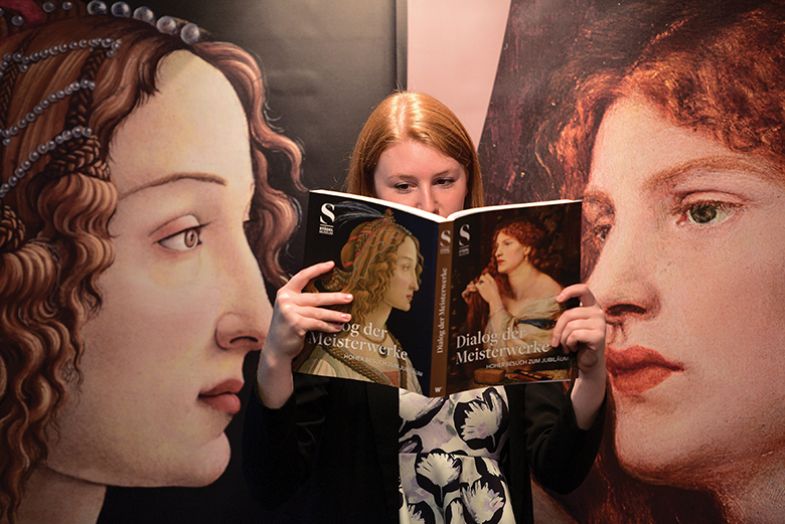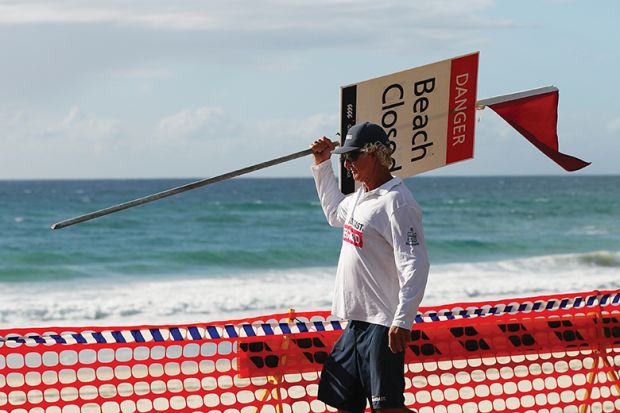After a long-running consultation, the UK’s main research funder has unveiled its open access policy, “in pursuit of a very simple thing, which is that publicly funded research should be made publicly available”.
Few will disagree with the words of Sir Duncan Wingham, UK Research and Innovation’s open access champion – but, inevitably, when it comes to the details of its implementation, opinions on the policy are strongly held and difficult to bridge.
In simple terms, the policy mandates that journal articles based on scholarship that UKRI funds should be made freely available at the point of publication from April 2022, with a similar requirement – albeit with the option of a 12-month embargo – applying to monographs from January 2024.
It allows authors to choose between the “gold” open access route, where articles are made freely available by journals in exchange for the payment of a processing charge, and the “green” model, under which authors lodge a free-to-read “accepted manuscript” in a depository at the point that a paper or monograph is published behind a paywall.
And it comes with the promise of an additional £46.7 million per annum from UKRI to cover processing charges and support implementation of the new rules, of which £3.5 million will be ring-fenced for books.
In many ways, the proposals on monographs, book chapters and edited collections have been the most controversial element of the policy, with arts and humanities scholars having raised concerns about whether sufficient funding will be available to cover the processing charges associated with open-access publishing, as well as the impact on smaller publishers.
There are fears that academic careers could be hindered if insufficient funds for book publishing are available, with previous estimates having suggested that it might cost more than £19 million annually to cover typical book processing charges.
Sarah Kember, director of Goldsmiths Press, said that providing only £3.5 million for books out of a budget more than 10 times that was a “clear indicator of the funding bias” towards the sciences and article publishing, “despite calls, during the review process, for more support for arts, humanities and social sciences”.
Paul Ayris, chief executive of UCL Press, the UK’s first fully open-access university press, said that he felt the ring-fencing of £3.5 million was actually a “strong signal” of support for the free-to-read monograph community. However, he warned that the funding must not “become a green light for publishers to charge as much as they possibly can. The UKRI funding is there to enable the transition to happen more smoothly, not to make as much money as possible.”
UKRI’s Sir Duncan, chief executive of the Natural Environment Research Council, said that the funder had looked at the number of monographs arising each year from UKRI funding when making a judgement about the level of support to provide for open-access publishing.
“The number of monographs arising from UKRI funding is a small proportion of the total published every year,” he said. “We’re not going to underwrite the cost of all monographs but [we will] underwrite the open access cost of monographs that arise from our funding.”
The new policy recognises that “there may be rare instances where meeting open access requirements for long-form publications may not be possible” and allows for a number of exceptions, including for trade books. The decision about whether a book falls into the trade category “is at the discretion of the author and publisher”.
Beyond funding, the key question on monographs is whether the infrastructure exists to deliver a shift towards open-access publishing on the scale intended. Professor Ayris, also pro vice-provost (library services) at UCL, said that while he was “absolutely enthusiastic” about the direction of the policy and the pace of change, there were questions about whether the existing infrastructure would be “able to deliver a fully national open-access monograph approach”.
“We need to make sure that the infrastructure is there that there are enough publishers, like UCL Press, who are able to deliver the volume of publishing in monographs that’s needed,” he said.
Samuel Moore, a scholarly communication specialist and researcher at Cambridge University Library, said it would be “vital that the block grant can be used to support pure open-access book publishers, not just those transitioning to an open model”.
“Open-access books have been pioneered by scholar-led publishers and university presses, most of whom do not charge book processing fees, and so these publishers need to be able to access the block grant to support their not-for-profit activities,” he said.
“Creating a fund that could conceivably be spent on book processing charges is likely to stimulate a market in this area, which would be a disastrous outcome and would lead to further commercialisation of an area that would be best served by close partnership between universities and small, not-for-profit scholarly presses.”
The division between bigger and smaller publishers has been a key issue on journal articles too, with major publishers criticising the embrace of green open access. Underlying this concern may be a fear that, by providing two routes to open-access publication, it will be harder for big firms to persuade research institutions to “flip” existing sector-wide subscriptions to their journals to big deals of a similar value, based on the payment of article processing charges (APCs).
Steven Inchcoombe, chief publishing officer at Springer Nature, said that the policy had created some “unintended consequences that needed to be addressed”.
He said that gold open access was the “only long-term solution that meets researchers’ needs”, and the basis on which publishers had accepted that they needed to shift their business models towards open access.
“Providing, as an option, access to an incomplete version which can only be funded by maintaining the current subscription models will lessen the incentives for publishers to add value prior to a paper being accepted, where they currently invest heavily,” Mr Inchcoombe said.
Having green as an equal option was “not good enough. The only way to open science is if the version of record with all its added value is made openly and freely available,” he continued.
Springer Nature, which publishes prestigious titles including Nature itself, faces particular challenges under the policy, which restricts funding of APCs to journals that are fully open access or part of a “transitional agreement” under which they are moving towards full open access.
Hybrid journals, which collect subscriptions as well as accepting payment for open-access papers, will be excluded, meaning that publication in titles such as Nature would be out of the question for UKRI-funded research.
Mr Inchcoombe said he was “hopeful” that a solution could still be found, arguing that many researchers still wanted to publish their research in prestigious and widely read periodicals such as Nature.
“We’ve got to try together to look at the evidence. It’s not about what publishers think, or what funders think; it’s about what’s best for the research system,” he said.
Sir Duncan told Times Higher Education that the policy sought to balance affordability for research institutions with sustainability for the publishing industry, while still giving authors a choice of publishing venues.
“This won’t all happen overnight, and it won’t happen without an effort from everybody to make it happen. Publishers, institutions and individual authors will need to adapt to our policy. All of us actually now have a responsibility to try and make this work for us,” Sir Duncan said.
For Cambridge’s Dr Moore, the need for change went beyond just the publishing industry, arguing that “a truly equitable open access landscape depends on significant changes to research evaluation, and I look forward to seeing how UKRI ties the policy to this broader desire for culture change”.
“Without this, we’ll see the big publishers continue to hoover up public money for [article processing charges], allowing a handful of multinational publishers to carry on dominating scholarly communication,” he said.
Meanwhile, UCL’s Dr Ayris said that the onus was on publishers to accept the direction of travel on open access.
“They are nervous about change, I understand that, but I would encourage them to be more positive and more outward-looking and think about the benefits that this policy will bring,” he said. “This is a momentous change.”
anna.mckie@timeshighereducation.com
 Source: Getty
Source: Getty

UKRI open access policy: in brief
Journal articles
- From April 2022, must be published in an open-access journal or, if published in a subscription journal, an author’s accepted manuscript must be placed in a free-to-read repository at the time of publication
- Must be available under a creative commons attribution licence (CC BY), or other licence permitted by UKRI
- No embargoes allowed on release of open-access version
- Use of funds for publishing in a “hybrid” journal that is not part of a transitional agreement towards full open access is not permitted.
Monographs, book chapters and edited collections
- From January 2024, free-to-read version must be available to read and download via an online platform or repository within a maximum of 12 months of publication
- Must be available under a creative commons attribution licence (CC BY), or other licence permitted by UKRI
- Exemptions apply “where the only appropriate publisher, after liaison and consideration, is unable to offer an open access option that complies with UKRI’s policy”; where the publication is the result of a training grant; or where permission for the reuse of third-party materials cannot be obtained
- Trade books are also exempt, and the decision about whether a title falls into this category “is at the discretion of the author and publisher”.
POSTSCRIPT:
Print headline: A sea change in scholarly communication?
Register to continue
Why register?
- Registration is free and only takes a moment
- Once registered, you can read 3 articles a month
- Sign up for our newsletter
Subscribe
Or subscribe for unlimited access to:
- Unlimited access to news, views, insights & reviews
- Digital editions
- Digital access to THE’s university and college rankings analysis
Already registered or a current subscriber? Login








